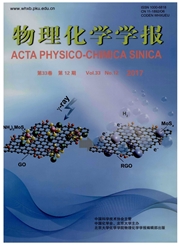

 中文摘要:
中文摘要:
微生物燃料电池(MFC)是利用生物催化剂将污水有机物中的化学能直接转化为电能的技术,因其功率密度和能量转化效率低,电极制作成本高,限制了其大规模实际应用。因此如何提高电极的催化性能并降低电极制作成本成为MFC的研究重点方向。由于石墨烯基杂化材料具有良好的导电性和催化特性,因此石墨烯基杂化材料成为在MFC电极应用中的热点之一。本文综述了近年来MFC石墨烯基杂化电极材料的最新研究进展,重点讨论了改性石墨烯电极、金属及非金属/石墨烯杂化电极、金属氧化物/石墨烯杂化电极、聚合物/石墨烯杂化电极和石墨烯凝胶电极的设计思路和制备方法及其催化性能,着重分析了石墨烯基阳极和阴极杂化材料对MFC产电性能的影响。最后对石墨烯基杂化材料在MFC应用中存在的问题及研究前景进行了总结和展望。
 英文摘要:
英文摘要:
Microbial fuel cell (MFC) is a novel bioelectrochemical device that uses a biocatalyst to convert chemical energy stored in organic wastewater into electrical energy. However, multiple factors limit the practical applications of MFCs, such as the high cost of electrode production and their low conversion efficiencies of power density and energy. Therefore, improving the catalytic performance of the electrodes and lowering the cost of electrode production have become focuses in MFC research. Because of the excellent electrical conductivity and catalytic properties of graphene-based hybrid materials, the development of these electrode materials for use in MFCs has attracted much attention. This review summarizes recent advances of graphene-based hybrid electrodes in MFCs. The preparation methods and the catalytic performance of graphene-modified electrodes, metal and non-metallic/graphene hybrid electrodes, metal oxide/graphene hybrid electrodes, polymer/graphene hybrid electrodes, and graphene gel electrodes are discussed in detail. The influence of graphene-based hybrid anodes and cathodes on the electricity generation performance of MFCs is analyzed. Finally, the problems facing graphene-based hybrid electrodes for MFCs are summarized, and the application prospects of MFCs are considered.
 同期刊论文项目
同期刊论文项目
 同项目期刊论文
同项目期刊论文
 期刊信息
期刊信息
